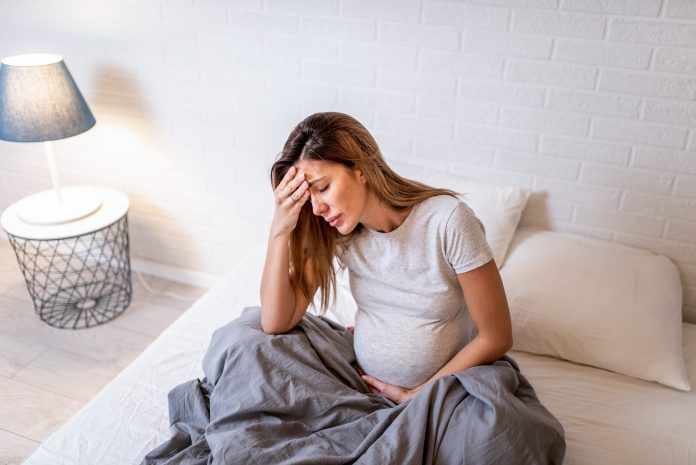
The WSU researchers measured the stress hormone cortisol in hair samples from 53 women in their third trimester. Of that group, 13 women who had elevated cortisol levels later experienced unpredicted birth complications, such as an early birth or hemorrhaging.
A simple hair test may reveal a pregnant person’s stress level and flag unanticipated birth problems, a study from Washington State University (WSU) suggests. This preliminary finding could lead to a non-invasive test to identify pregnant people at risk for such complications.
The researchers reported their findings in Psychoneuroendocrinology. The study’s senior author is Erica Crespi, a WSU developmental biologist.
“There was otherwise nothing about these women that would suggest a disease or anything else complicating the pregnancy. This confirmed some hypotheses that levels of stress, related specifically to cortisol levels, might be associated with adverse birth outcomes,” said Crespi.
Study participants answered survey questions about their psychological distress levels and their cortisol levels were measured in the third trimester of pregnancy and after they gave birth. The women who experienced unexpected birth complications had elevated cortisol concentrations in their hair, a measure that indicates the stress hormone’s circulating levels in the body during the three months prior to collection. These women also reported feelings of stress, anxiety, and depression, but on average, only high cortisol levels during pregnancy showed a strong link to adverse birth outcomes.
Two months after giving birth, the group that experienced birth complications continued to show elevated cortisol and gave survey answers indicating continued stress, anxiety, and depression. At six months, their cortisol remained elevated, but they started to report lower psychological distress on the survey, which the authors noted might be a sign of recovery.
Cortisol, a steroid hormone, rises in humans and many animals to help regulate the body’s response to stress, but prolonged high cortisol is associated with major health problems, including high blood pressure and diabetes. Throughout pregnancy, cortisol levels naturally rise two to four times and peak during the third trimester, but the measurements in this study showed even more pronounced elevated cortisol levels among the women who had unexpected birth complications.
“If this finding holds up, it could be a non-invasive way to get greater insight into who might be at risk because it is information we didn’t get from the survey,” said co-author Sara Waters, a WSU human development researcher. “This was not something we could find out just from asking people about their stress.”
Finding ways to reduce stress around birth could help improve outcomes for both infants and mothers, the researchers said. They point out that adverse birth outcomes are rising in the country. The U.S. also notoriously has one of the highest maternal mortality rates among developed countries, with deaths disproportionately impacting Black women and other people of color.
This study, the researchers say, is also a reminder to expectant and new mothers to prioritize their health.
“It’s very easy to sacrifice our own health and well-being to prioritize our children’s, especially when it feels like resources are scarce,” said Waters. “But our ability to show up as parents comes from a foundation of getting our needs met too—like the saying, ‘you can’t pour from an empty cup.’”